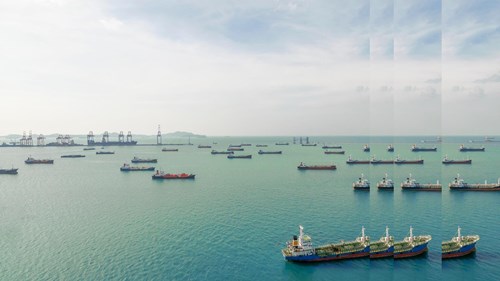Russian Government Commission regarding transactions and dividend payments
Russian Government Commission establishes principles for consent to transactions and dividend payments
I. Background
For several months after the Russian President (a) significantly tightened restrictions on direct or indirect transfers of shares in Russian limited liability companies (LLCs) by individuals or legal entities from “unfriendly” countries (“Unfriendly Persons”) with Decree No. 618 dated 8 September 2022 (“Decree 618”) and then (b) also made the transfer of shares in Russian stock corporations by Unfriendly Persons completely subject to the consent of the Government Commission for Control of Foreign Investment in the Russian Federation (“Government Commission”) with Decree No. 737 dated 15 October 2022 (“Decree 737”), which constituted a marked tightening of a decree with a similar intention, Decree No. 81 dated 1 March 2022, the principles and criteria upon which such consent was to be based were not drawn up, or at least were not published. This also applied to permission to distribute dividends to Unfriendly Persons. Such distributions were restricted by Decree No. 95 dated 5 March 2022 and Decree No. 254 dated 4 May 2022 and then likewise made subject to the consent of the Government Commission by Decree 618.
II. Principles of the Government Commission
An initial draft by the Government Commission on the principles for consent to transfers of shares/interests by Unfriendly Persons was publicly circulating mid-December, although the official publishing of the extract from the minutes of the meeting of the Government Commission did not take place until 30 December 2022.
The Government Commission presented a list of specific criteria and conditions in the document which, in connection with the consent to the transfer of securities of Russian companies (which include shares, stocks and deposits (“Assets”)), are deemed to be particularly important. These include:
- an independent valuation of the market value of the Assets;
- the disposal of the Assets at a discount of at least 50% on their market value as determined in an independent valuation;
- the determination of performance indicators for new shareholders (owners);
- the granting of a payment deferral of 1-2 years and (or) commitment to a voluntary payment of funds into the (Russian) budget in the amount of at least 10 % of the transaction value.
The Government Commission further specified the principles/criteria that must essentially be observed if approval for profit distributions (dividend payments) by Russian companies (“Companies”) to Unfriendly Persons is to be granted. These are as follows:
- the amount of profit to be distributed (dividend payments) may not exceed 50% of the Company’s total net profit from the previous year;
- a retrospective analysis of profit distributions (dividend payments) for past periods shall be taken into account;
- the Company’s foreign shareholders must be willing to continue commercial activities in the Russian Federation;
- the views of the federal executive authorities and the Central Bank of Russia must be taken into account in assessing the significance of the Company’s activity and the impact of its activity on the Russian Federation’s sovereignty in terms of its technology and production and on the Russian Federation’s social and economic development;
- the establishment of quarterly performance indicators for the Company by the federal executive authorities;
- the possibility for the Company to make quarterly profit distributions (dividend payments) provided that the Company has satisfied the performance indicators.
III. Assessment and Outlook
1. Transfer of Shares
As soon as Decree 618 was issued, it could be assumed that the Russian government would seek to make it more difficult for foreign companies to decide to leave the Russian market by creating legal uncertainty through an intentionally vague procedure that in any case delayed exit transactions and increased their costs. Moreover, Russia sought to reserve the right to decide who would be allowed to leave the Russian market and under what conditions.
In the list of criteria and conditions now presented, the Government Commission makes it clear that foreign companies should not benefit from exiting Russia and should only do so on terms that favour purchasers (preferably Russian ones). According to media reports, the Russian finance minister already announced last summer that companies exiting Russia should certainly be made to experience some losses. This approach is reflected in the extensive nature of the requirements that have now been established.
The majority of foreign companies that have decided to exit Russia have already suffered losses due to the de facto cessation of their business in Russia. Even though these companies may not have expected to achieve the highest price when selling their Russian Assets, a discount of at least 50% of the value of the Russia Assets is nevertheless a painful measure; this is especially so where the valuation of the Assets has already taken into account the reduced scale/practical discontinuation of business operations or the fact that it is no longer possible for previous business operations to be continued.
Sellers will be no less concerned by the ambiguously drafted requirement that purchasers be allowed to defer payment by up to two years since this would mean ‒ especially given the unpredictability of Russia’s political and economic development ‒ that they would be transferring their shares without adequate certainty of receiving the (full) payment price. Most foreign companies will regard this uncertainty as unacceptable.
The additional obligation respectively variant (the wording on this is probably intentionally left ambiguous) - payment into the budget of at least 10% of the value of the transaction - will pose (possibly severe) challenges too. If this is to be understood as a seller’s obligation (here, once again, the Government Commission’s wording is not clear), it might be economically possible to absorb the 10% as a burdensome but unavoidable step in an exit strategy. However, the fact that foreign companies (sellers) would be helping to finance Russia’s war in Ukraine, at least indirectly, by making payments to the Russian government results in exactly the significant compliance problems and reputational risks that the companies hoped to avoid by exiting.
As yet it is impossible to predict whether the Government Commission will strictly adhere to the principles it has established or apply other/further less transparent factors that may not be economically motivated. There has already been one highly visible case of refused consent, regarding which it is generally assumed that the Government Commission felt that the purchase price was too high because it exceeded an amount three times EBITDA.
Because the regulatory framework for transfers of shares has been tightening since the war began, apparently with the goal of giving the Russian government stronger means of controlling planned transactions, it cannot be ruled out that further restrictions will follow.
2. Dividends
For reasons including preventing capital flight and to strengthen the ruble, Vladimir Putin restricted the payment of dividends at the very beginning of the war (including by setting a maximum amount of RUB 10 million per month (“Base Amount”)). Further restrictions were attached to dividend payments that exceed the Base Amount in the course of the year. The now published list of approval criteria is intended to more closely link allowed distributions to the economic key figures and the continued operation of Russian subsidiaries of the foreign shareholders. In addition, distribution exceeding the Base Amount is no longer to be possible on a monthly basis but only per quarter and this only under the prerequisite that certain performance indicators are fulfilled. The aim here is to put the owners under pressure to (successfully) continue their business operations in Russia because otherwise, distribution of dividends, including those from profit carried forward from previous years, will be restricted or prevented.
With the above-mentioned principles established by the Government Commission, the situation for companies that wish to leave Russia but are not willing to give up all of their profits and the prospect of sufficient consideration for the value they have created has taken a considerable turn for the worse. The result will probably be more insolvent Russian companies and subsidiaries and thus - from the viewpoint of the non-Russian shareholders - more uncontrolled exits from Russia.
Well
informed
Subscribe to our newsletter now to stay up to date on the latest developments.
Subscribe now









